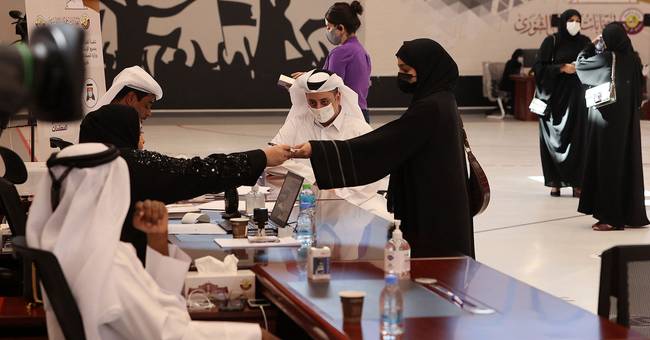A consultative assembly, which decides on legislation and the state budget, will be elected in the country’s first national elections.
Two-thirds of the council, 30 members, are elected from as many constituencies. The remaining 15 members are appointed by Emir Tamim bin Hamad Al Thani, who also has a veto right over all decisions taken by the assembly.
Most of the candidates are men. Of the 284 who show up, only 28 are women, according to the AFP news agency.
– The congregation is only consultative, the political power will remain in the hands of the reigning family, explains Kristian Coates Ulrichsen, researcher on the Middle East and author of several books on the policy in the region.
A country in the spotlight
Qatar is considered the richest country in the world in terms of GDP per capita. On the other hand, only a little over a tenth of its 2.7 million inhabitants are citizens. The vast majority of residents are guest workers, whose unsanitary living conditions are often criticized by the outside world.
That the parish be nominated by the people is written in the country’s constitution of 2005, but the election has been postponed several times. It is believed that the reason he is standing now is because Qatar received the eyes of the world ahead of the 2022 World Cup, which the country is hosting.
Qatar has also increased its influence on the international stage by holding peace talks between the now overthrown Afghan government and the Taliban, as well as through its role in evacuating people from Afghanistan.
– The Emir is aware that the international spotlight is on Qatar, says Kristian Coates Ulrichsen.
Fractions are allowed to vote
Polling stations opened at eight a.m. local time. However, the proportion of residents allowed to participate in the election is very low. This summer, the emir introduced new electoral laws that restrict the right to vote even among those who are in reality citizens. To be able to vote, you must be able to prove that you have ancestors who lived in Qatar in 1930, that is to say before the country discovered oil.
Demonstrations against this change in the electoral law took place and several critics of the Emir were jailed.
Organizations such as Human Rights Watch (HRW) condemn limited voting rights.

“Total travelaholic. Subtly charming zombie geek. Friend of animals everywhere. Music buff. Explorer. Tv junkie.”

